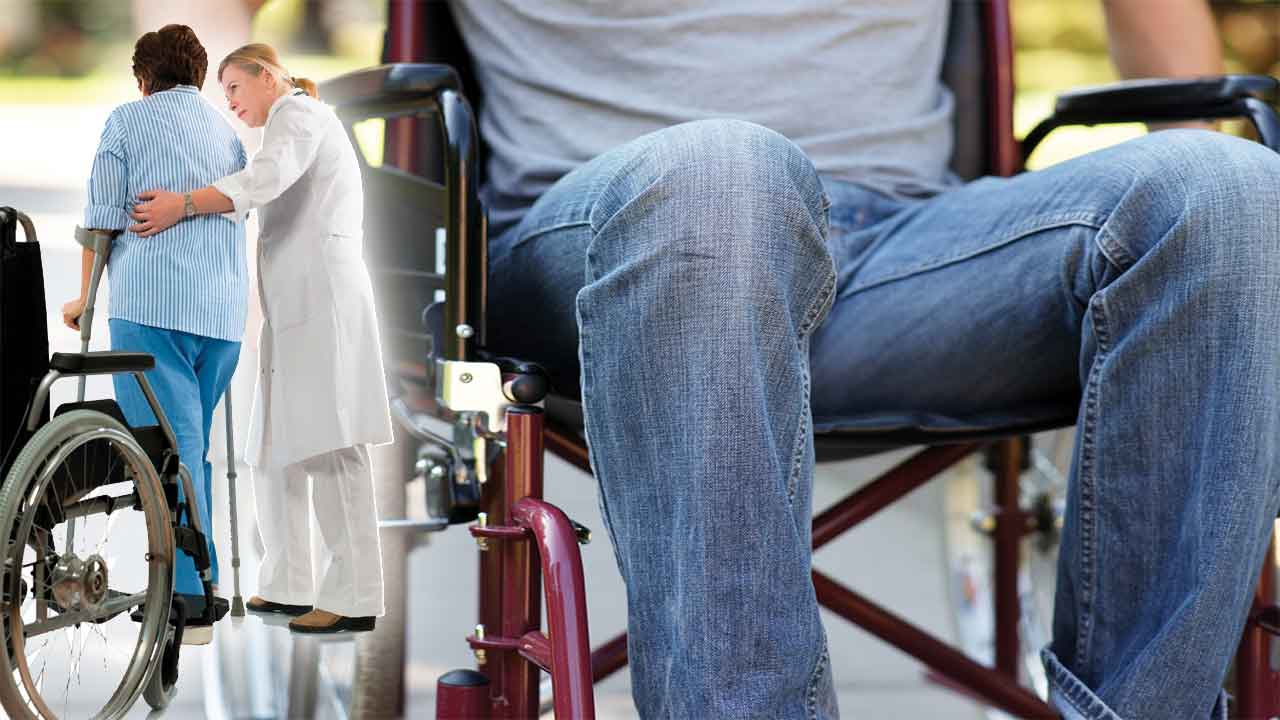
The International Day of Persons with Disabilities will be observed on Saturday 3 December 2016. The theme this year is: “Achieving 17 Goals for the Future We Want”. Persons with disabilities still face social and economic challenges, for example, access to jobs. The international day is an annual occasion for all stakeholders to reflect on how to address these challenges. Since 1992, the United Nations International Day of Persons with Disabilities (IDPD) has been celebrated annually on 3 December around the world.
The theme for this year is inspired from the recent adoption of the 17 Sustainable Development Goals (SDGs) and the role of these goals in building a more inclusive and equitable world for persons with disabilities. In Mauritius, various activities are planned to mark this event. Two key areas of concern are access to education and access to employment.
Many associations engaged in the promotion of disability rights are struggling to improve access to education, training and jobs. While much has been done during the past decade to combat economic exclusion of disabled persons, there still remains much to be done to further improve the lives of the disability community. It is a fact that persons living with disabilities but who have an aptitude to work are often unable to find jobs. When they do find jobs, they meet other obstacles that force them to turn down an offer.
The ‘Training and Employment of Disabled Persons Act 1996’ provides for the workforce of all employers having 35 or more employees to include 3% of persons with disabilities. In practice, this is rarely achievable because of obstacles: poor infrastructure, lack of specialized transport facilities, working environment not being diabled-friendly, etc. As Yaaseen Edoo, recipient of Queen’s Young Leaders Award explains, it is not possible for a disabled person to accept a job because of these constraints. While some employers do offer a job, they cannot take responsibility for the transport of disabled persons or safety issues.

Yaaseen Edoo regrets that economically active disabled persons in Mauritius cannot use
our public transport system to go to work.
“Many working environments are not disabled friendly. But the most important issue is that of transport. Public transport is not suitable for persons with disabilities. Even the newly introduced semi-low floor buses are not necessarily suitable for disabled persons. A person on a wheelchair cannot travel on his own, because of inappropriate infrastructure such as pavement, uneven road surface, etc.”
Gavin Ng, analyst, and also one of the hosts of ‘Handicap Universel’ explains that we must find other ways to facilitate the employment of the disabled. “For example, we can encourage the concept of working from home. Disabled persons can be trained for administrative and other ICT tasks that can be done from home via the internet. The government must offer fiscal incentives to employers who recruit disabled persons to work from home. We might also consider offering free internet access to disabled workers operating from home.”
Coomara Pyaneandee: “Training is a must”
 Coomara Pyaneandee, barrister and disability activist, talks about the plight of disabled persons in Mauritius.
Coomara Pyaneandee, barrister and disability activist, talks about the plight of disabled persons in Mauritius.
What do you think of the plight of persons with disabilities?
The first thing I note is that in Mauritius, persons living with disabilities face a lot of discrimination. It is unfortunate to say so, but disabled persons are often considered as second class citizens. We may be feeling united as Mauritians but society imposes a limit on those suffering from a disability. For example, do you know that disabled persons in Mauritius are not recognized under Article 16 of non-discrimination? To date there is no law in Mauritius that protects vulnerable persons such as the disabled against discrimination. Yes, we do have an Equal Opportunities Commission, but its attributes do not cover all aspects of disability discrimination.
Secondly, persons with disabilities do not have equal access to education. If someone suffers from any disability, then our society decided that he or she must attend a specialized school. It is high time to realise that there are varying degrees of disabilities and we cannot put all of them in the same basket. Most of the disabled children in Mauritius are capable of attending normal schools just like any other child. We must simply invest in the proper infrastructure in order to remove obstacles to accessing education. Furthermore, had we followed a model of inclusive education since 1981, our children would have grown up in a totally different Mauritian society from what we are living in now. What I am trying to say is that our children would have evolved in an inclusive education system where disabled and non-disabled children would have interacted with each other. This is how children would have learned about being tolerant towards others and learning human diversity.
How do you see the professional future of disabled persons?
There remains much to be done in this field. Training is needed to increase social and economic inclusion of disabled persons in their professional lives. The environment must be adapted to the needs of disabled persons willing to participate by taking up jobs. When disability activists fight for a more accessible society, they demand access to not only infrastructure but also access to information, to technology and to rights. However, I am relieved that today there exist many inclusive programmes for disabled persons. We are somewhat late but, as the adage goes, better late than never. I am pleasantly surprised to note that the recent Budget makes provision for the payment of an allowance to disabled children up to 15 years old. I hope parents will respect this allowance and not use it to fund the private tuitions of other siblings.
What measures do you suggest to address the issues you highlight?
First of all, there is the responsibility of the State. I believe the issue of disability does not involve only the ministry of social security. For example, when disabled persons have a health issue, why should they seek assistance from the ministry of social security? They should contact the health ministry. There must be good coordination among different ministries and other institutions in order to solve problems encountered by the disability community. It is also time that the disability issue moves beyond partisan politics. We also need better representation at all levels in society. For example, disabled persons and their parents/kins should be able to sit on committees. Those who want to become entrepreneur should be given the necessary facilities. It is also very encouraging to note that the government is currently working on the Disability Bill. I invite all stakeholders to debate thoroughly on the subject and to have wide consultations with everyone. As the saying goes, ‘nothing about us without us’.
Interview realised by Gavin Ng
 J'aime
J'aime














